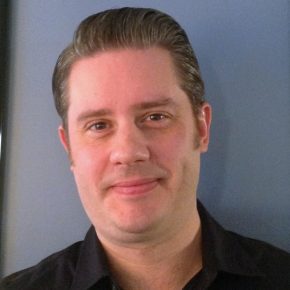Sean Young, PhD candidate in Sociology at Loyola University Chicago, works with ONE Northside, a community organizing coalition which seeks to develop grassroots leaders within the communities of northeast Chicago to help them advocate for their own interests. ASA asked Young about that work:
What is the mission of ONE Northside? ONE Northside is a community organizing coalition of over 100 member organizations. Their mission is to develop grassroots leaders within the communities of the northeast side of Chicago who can advocate for their own interests to create change.
Could you describe involvement with the organization? Initially, in 2014, I participated as one of three researchers conducting an evaluation of the merger of two smaller community-organizing groups into one larger organization (ONE Northside). This study was to provide valuable feedback and assessment of the process and some of the initial outcomes of the merger. The evaluation was conducted as a collaborative, community-based research project where ONE Northside staff and community members contributed to both the formulation of the research questions and the analysis. Since then, I have expanded the organizational evaluation project for my dissertation to examine the impact of organizing activities on ONE Northside’s coalition member organizations. Early analysis has been used by ONE Northside in their five-year strategic planning. Both ONE Northside and the member organizations I’ve been studying have expressed interest in using the results of my dissertation research in their reports to funders and constituencies as well as to better understand how they can work together to increase the voice of communities typically marginalized in urban development and policy processes. During my research activities as a participant observer in several “issue teams,” I have also used my knowledge and skills to conduct background research and contributed to strategic planning on several campaigns related to community development and housing, mostly campaigns to stem gentrification and promote options for affordable housing.
What sociological knowledge and/or skills did you use for this project?I have relied heavily on the training in collaborative, community-based research I received while working at CURL. This has proven invaluable in planning and conducting my dissertation research. Additionally, my knowledge of urban sociology, housing, gentrification, and urban development has proven a useful area of expertise and a resource for contributing to several of the organization’s campaigns advocating for more just and equitable social policies and development strategies. My ability to create and present usable data from large internal databases has also proven a useful tool that has helped the organization think strategically about their work and plan for the next several years.
How did you connect with ONE Northside? ONE Northside approached staff at Loyola’s Center for Urban Research and Learning (CURL) to conduct an evaluation of their merger with another organization, and I participated in the evaluation as part of a team of CURL researchers.
Is there anything else you would like to share about this work? While this has been a good example of an organization initially soliciting a partnership with sociologists for a specific task (the merger evaluation), it has also been an excellent example of how sociologists can position themselves in relationships with organizations to provide ongoing expertise and a unique skill set. However, it is worth noting that sometimes the process of looking for opportunities to contribute can be challenging due to the real-world demands and constraints imposed on many nonprofits and community-based organizations. Positioning oneself in a collaborative relationship with community-based organizations may require a great deal of patience and creativity for both of you to discover exactly how that expertise can be of use. An important lesson learned from this process has been that it is difficult (if not impossible) to predict exactly how that expertise and those skills will be relevant to the organization and therefore sociologists must be proactive in looking for opportunities to contribute to the work and mission of organizations that are doing difficult work in communities to create progressive social change.
This project has also provided me with new opportunities to meet community leaders and immerse myself into the world of community organizing in Chicago beyond what was strictly required for the research. Because of that, my work with ONE Northside has sparked additional collaborative research opportunities with a newly formed Catholic community organizing group. This new research was made possible, in part, because of the time I had spent within a social world with its own institutions, norms, and relationships. Thus, a second valuable lesson learned has been that collaborative, engaged research often creates new opportunities that would not be possible without spending time in those social worlds building credibility as a public and engaged researcher.
